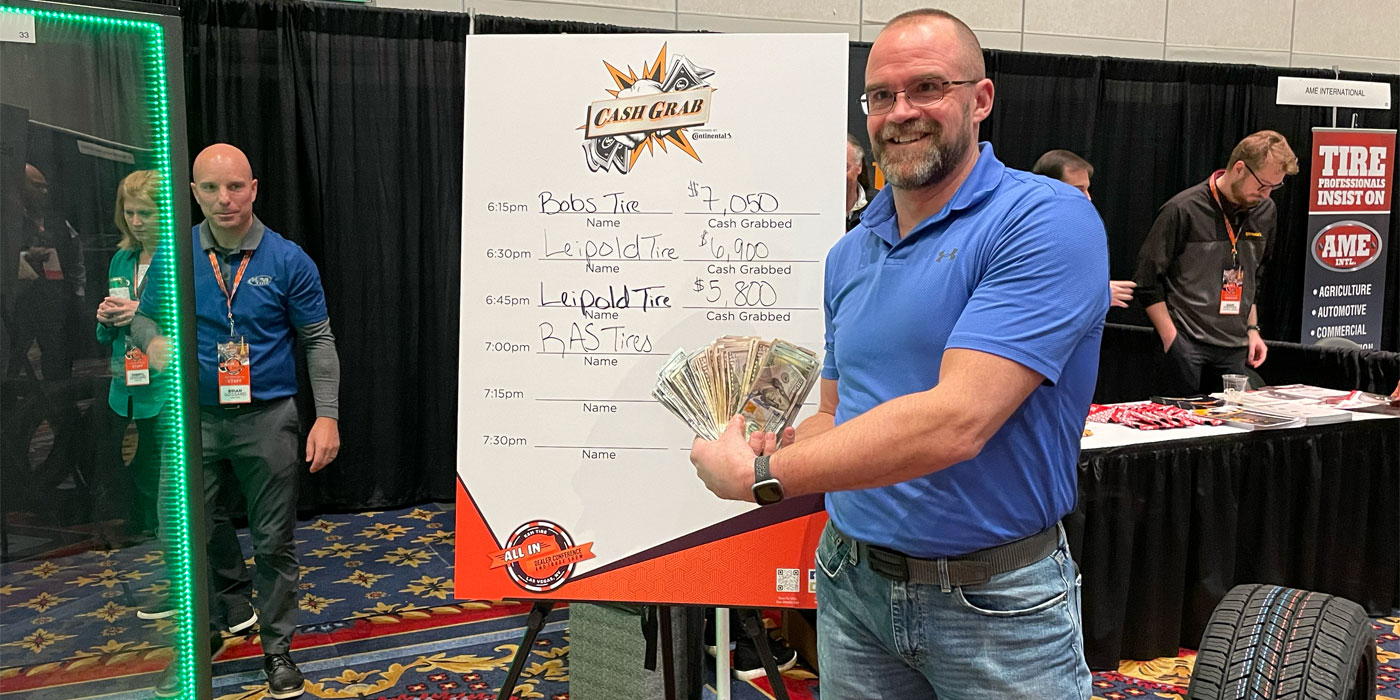When Trey Cook’s grandfather founded Savannah Tire in 1951, he was forward-thinking enough to hire an estate-planning attorney long before he retired. Now that the eight-shop dealership is owned by Trey’s 67-year-old father, the Cooks already have planned the Georgia company’s transition to Trey’s generation – still using the same attorney Trey’s grandfather did decades ago.
“It makes for a very easy understanding by all parties involved,” says COO Trey of his family’s particularly smooth, familial and time-tested process.
But the Cook family’s experience has indeed been atypically smooth. Too often, business owners – human beings after all – are reluctant to think about the time they’ll cash out, either literally through retirement or figuratively to that big ol’ retirement home in eternity. Many put off succession planning and wealth-preservation strategizing until it’s either too late, or later than is ideal.
Financial advisors warn that today’s economic uncertainty is only exacerbated by such delays in business estate planning. They also caution business owners against feeling falsely secure just because plans have been made to pass along a company within a family without a sale. The tax ramifications can still be huge.
So, once mortality – or at least retirement – have been acknowledged, what should tire dealers do to successfully pass along their business, as well as preserve their wealth?
Tire Review interviewed three experts – a business-wealth transfer-planning specialist and author, a continuing- and executive-educator in the field, and a philanthropy architect – to gather their wisdom on the topic. Here is their advice.
Family Matters
Karl Bareither has spent half a century helping families with the legal, tax, financial and relationship issues relating to the transfers of their businesses. The Avila Beach, Calif.-based transfer-planning specialist calls his approach holistic, since it deals with what he considers to be four intertwined aspects. From the commonalities he found in those 50 years of work, he wrote two books on the subject: “Planning a Family and Business Legacy” and “Becoming a Wealth Transfer Specialist.”
“It’s my attempt to assist family businesses to learn from others how they both failed and succeeded to pass on their family-business wealth,” he says. “Planning is a journey, not a destination.”
The business-legacy book, Bareither explains, presents “deplorable statistics” surrounding poorly transferred wealth and encourages business owners to not delay in creating succession plans. It also tells readers to avoid potentially disastrous secretive plans by having a trained specialist conduct individual meetings with each family member and key non-family employees, possibly concluding with a family retreat to review the final plan.
Not only does this process promote family communication about a potentially touchy subject, he says, but it also maximizes profitability and minimizes the role of the Internal Revenue Service. “It redefines wealth as more than money or property and includes healthy family relationships as a legacy beyond financial wealth,” Bareither says. “It redefines the client as the entire family rather than the current principal business owner.”
Bareither says he has clients consider several questions before establishing a family-based succession plan:
• Are family members ready to assume control, or will key non-family employees be able to run the company effectively?
• Would the value of the business be better protected by the sale of the business to a non-family member in order to better achieve family objectives?
• Will the business owner be able to retire and keep the family business intact?
• Does the business owner have an adequate retirement established?
“And if you want to leave a legacy,” he says of another important consideration, “evaluate the buyer to determine if the quality of service will continue to meet your standards.”
Eagerness to simply accept the highest bidder when selling a business, after all, is widely recognized as a potential mistake in legacy planning. Other issues, from the continuation of corporate culture to a buyer’s financing choice, need to come into play. Some small-business owners even choose to avoid buyers altogether, as family transfers can be tax savers.
But Bareither advises that business owners become “aware of changes in tax law that will affect their ability to transfer their business interests with the least amount of IRS interference,” he says. “Tax laws change from time to time, and business owners need to be aware of these changes in order to modify current planning.”
Bareither also reminds clients that if a business is owned by more than one person, a written business-continuation agreement should be executed, in case disability, illness, accident or death befalls one of the owners. He says it should reflect the true current value of the business, as determined by a licensed appraiser, as well as its potential future value.
Not only does a realistic appraisal result in a cleaner transfer in the case of an owner death, it also prevents the need for a revamped retirement for those owners who simply leave the working world, as many retirement plans are based on bad valuations.
And bad valuations are just one of the glitches that may occur in the succession process if a dealer’s advisors aren’t qualified. Keeping things in the family doesn’t mean hiring Uncle Louie to do the deal. Some experts even suggest that multiple interviews be conducted with multiple candidates when seeking legal counsel and other professional services to avoid missed business opportunities.
Bareither says that qualified experts also can be located through trusted referrals. In addition to an objective, independent and experienced business-estate planning attorney, those experts might include an accountant, a life-insurance agent, a financial advisor, a licensed appraiser and even a family system specialist when matters of business distrust arise. “I think it’s important to contact all trusted advisors and encourage them to work as an effective team,” he explains.
By doing these things, Bareither says, tire dealers may come to understand what he considers to be the principles of successful succession planning: It’s a family affair, not an owner’s affair; it’s a process, not a transaction; it’s an open agenda, not secretive; it deals with both internal and external matters; it should be objectively facilitated, not a free-for-all; it’s an examination of issues, not a whitewash; and a business’s greatest resource isn’t a shop, equipment or real estate, but people.
Open Up and Let Go
As with many family matters and communication issues, however, openness in succession planning can be tough. Brian Cruickshank believes it can indeed be the most difficult part of the process.
“For small-business owners, the sharing of information can often be the hardest step,” says the director of Northwood University’s University of the Aftermarket, a continuing education program for vehicle aftermarket executives in Midland, Mich. “In many respects, the owner is the business. They make all the decisions. They have all the contacts. They know the details of the business and tend not to share this information with anyone. However, this information must be shared with those who will ultimately take over the business someday.
“When you create a business that’s dependent on the owner, you do two things,” he explains. “First, you limit your growth. A personality-dependent business only runs at its best when the owner is present. These kinds of owners feel like they can never take a vacation because they feel like they need to be there.
“The second issue, the one that relates to succession planning, is that such owners tend to keep all the information to themselves. If there were ever a problem, who would know what to do? Sharing of information – not only the day-to-day operations, but the larger issues – is critical to creating a business that can survive.”
Some experts also attribute lower company sale prices to owner-dependency, saying potential buyers may see such businesses as high risk. And the emotional impact of selling or transferring a business can be overwhelming enough without over-attachments of purpose and self, which have been known to result in downright irrational behavior during transfer negotiations and beyond. Some owners simply can’t let go.
So, how can tire dealers avoid these pitfalls and begin the process of openness and successful transfer?
“To get the ball rolling, talk to your attorney and financial advisor,” Cruickshank says. “Then start thinking about the kind of person you’d like to run the business, remembering that they may not be just like you.
“What kind of person would I feel comfortable with running the business, and is there someone already here who meets those criteria?” he says, listing questions that should be asked. “Do my children have the same passion that I do for the business? They don’t always. Do my children have the aptitude to run the business? They don’t always.”
Once a dealer has come to terms with his or her expectations for the dealership’s legacy, Cruickshank says a trusted attorney and accountant can delve into the details. “Many of the business-transaction issues should be discussed and put in a document before a problem like death or illness arises,” he says. Among the legal documents created to help define a business and plan for its future are real-estate trust entities, limited liability company entities, operating agreements, articles of incorporation and last will and testaments.
As for the nation’s current economic state, some experts say today’s lower valuation rates actually may provide a tax benefit to planning ahead and taking action. If a business is valued at $10 million today, for example, waiting until it’s valued at $20 million can result in a higher gift tax for those who transfer interests in the company.
Cruickshank, however, says the economy shouldn’t play too much of a role in a dealer’s succession considerations. “Economic realities really have no bearing on whether a business plans for succession,” he says. “It certainly might impact the valuation of a business, but those details are the sorts of things that get sorted out later. Finding the right person and putting a plan in place, those are the sorts of things that can be done in good or bad economic times.”
Cruickshank’s best advice? It’s simple: “Do it now.”
Symbiotic Strategy
Dan Rice considers himself a philanthropy architect. It’s an intriguing title that applies to both his work with Convoy of Hope, a global charity based in Springfield, Mo., as well as his expertise in charity-based small-business succession planning. But his two roles go hand-in-hand.
“First, let’s agree that, for most business owners, the essence of succession planning is being able to keep and continue the business in the family,” he says. “The process to successfully complete a succession plan focuses primarily on two cans of worms: the transfer of the legal ownership of the business and the transfer of management control. Importantly, the good news is that the timing of these two types of transfers may be extremely different.
“The charitably-minded client can consider transferring their business ownership to the next generation using…a charitable remainder trust, a charitable lead trust or a private family foundation,” he adds. “The children can still work in the business and develop their management competence and confidence while waiting to receive the stock ownership in the business.”
That’s when the symbiosis between the two concepts begins.
“Interestingly,” Rice explains, “in many cases the money that would have otherwise been paid out to the IRS in the form of income taxes, capital-gains taxes, gift taxes or estate taxes can instead be given to the owner’s favorite charitable organizations or to the family foundation. The foundation can also be one of the owners, too.
“If you began to put your succession plan into play and you knew there was going to be a tax hit that goes with it, and you had a choice between paying those taxes or giving away that money to your favorite charities, what would you say?” he asks. “In many cases, it’s wise to take the extra time to compare what is left over for you in the way of discretionary income if you decide to include or exclude charitable gift planning.
“Usually, the tax threat occurs when the business owner will be realizing a capital gain from a profit-generating transaction,” Rice says. “Instead of having to recognize the entire capital gain, when you sell stock or other assets for a profit, you can avoid paying unnecessary capital gains taxes by giving to charity that portion of the stock or other assets equal to the value you were planning to give away already.”
But given today’s economy, is the charitable approach to tax savings feasible? Rice resoundingly says yes – but not for long.
“For those people who are still jammed up with succession-planning paralysis, it’s time to recognize that it would be hard to find a better time to get unstuck,” he says. “Remarkably, the small-business owner today has the greatest range of options, processes, techniques and tools for conducting their succession plans than at any other time in recent memory. That’s chiefly because the federal gift tax, estate tax and generation-skipping transfer tax rates are the lowest, and the related exemption amounts are at an all-time high. The catch, however, is that unless Congress takes action, these tax rates will increase, and all exemptions will decrease dramatically beginning Jan. 1, 2013.
“For example,” Rice hypothesizes, “if a business owner took action now and completed their succession plan in 2012 by transferring ownership of their business to their children, the business owner could remove up to $5.12 million, or $10.24 million for a married couple, of their business assets out of their estate, free of gift and estate taxes.”
But what if the business owner still has concerns about giving up control over the management of the business in 2012?
“Savvy business owners understand the difference between ownership of a business and control of a business,” he explains. “For example, if I give my daughter 99% of the stock in my business in the form of non-voting stock, and I keep the remaining 1% of the stock in the form of voting stock, I still get to call all of the shots. Period.”
Rice apparently is in agreement with Cruickshank and Bareither about the difficulties many business owners have with simply letting go. But he also offers solutions.
“Perhaps the greatest concern is a fear of losing control,” he echos. “However, when a cautious business owner is contemplating including a charitable trust or foundation as one of its business owners, he or she can also choose to serve as the trustee of the charitable entity and retain legally permissible control over the stock held by the charitable entity. Business owners can also give non-voting stock, or stock subject to buy/sale agreements and also attach rights of first refusal on stock redemptions. These arrangements and others can enable business owners to give stock confidently to these entities.
“Plus, there is substantial flexibility in how the stock can be subsequently owned or transferred or redeemed or sold by the charitable entity,” he adds. “Business owners might find it comforting to know that the two largest and most valuable gifts transferred each year to charitable trusts, foundations and organizations are gifts of family-owned business stock and real estate.”
So, if a dealer chooses the charitable route to succession planning, how should he or she begin the process?
“A tire dealer who is also involved in regular charitable giving should consider giving a planned-giving expert a seat at the table,” Rice says. “Each year, many very wealthy business owners who can afford the best advisors pay enormous amounts of capital-gains taxes and also make significant charitable gifts, according to the annually published ‘IRS Statistics on Income.’ The dealers’ professional advisors have their heads down and are focused entirely on their areas of expertise. The benefits of giving assets like stock instead of cash are overlooked. A philanthropy coach can help dealers save taxes, without the dealers having to give more than they had planned to. It’s just a matter of giving a different way.
“Fortunately, if the business owner is already actively giving to charitable organizations and at least one of them is a larger charity listed in the Philanthropy 400, it’s a safe bet the charity will have a planned-giving department that can help,” he adds. “Another resource is the Partnership for Philanthropic Planning, an 8,000-member organization that can help the business owner wherever they’re located.”
Regardless of the tactics used, Rice strongly suggests considering the charitable approach.
“Don’t leave sensible and complimentary charitable-planning options on the table, especially when they can yield significant leftover discretionary income for you while allowing you to have an indisputable choice between paying avoidable taxes or making meaningful charitable gifts – from capital you’re not going to be able to keep for yourself.”













